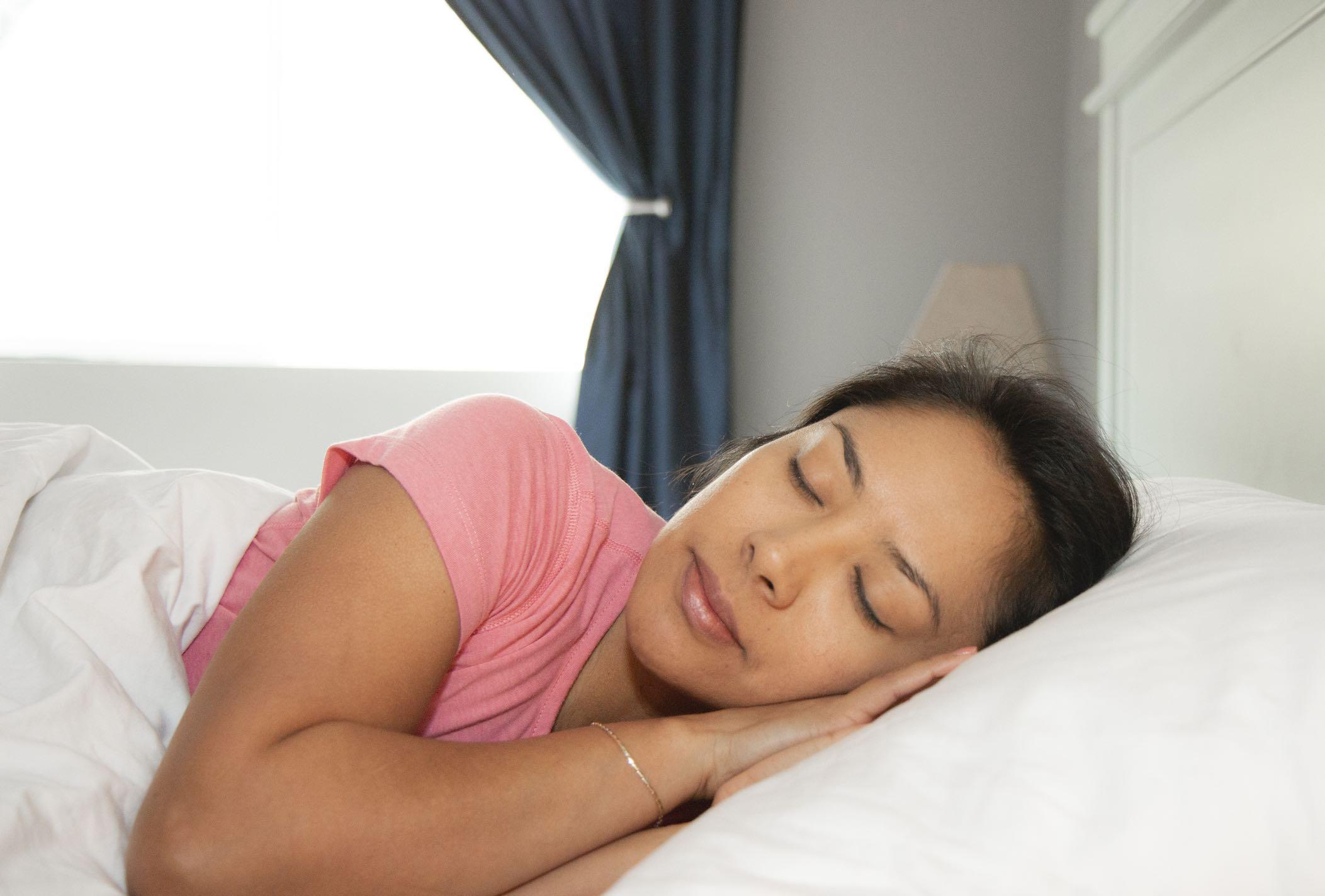
In the "hustle-centered" world of today, sleep is the first thing that gets cut. Gallup says that over the past 50 years, we've lost one hour of sleep each night compared to what we did in the 1950s. If you lose an hour of sleep every day for a year, it's easy to see why people are tired and dependent on their morning coffee.
People are sleeping less and less because their lives are busy and their jobs are stressful. This is especially true for full-time employees, who often complain about their health without realizing that they aren't getting enough sleep.
It is not anything to be proud of to sleep for fewer than 6 hours a day and still have enough energy to carry out daily tasks. Similar to how necessary it is for life to have access to food, water, and oxygen, sleep also plays a significant role. Sleep deprivation is linked to cardiac issues, obesity, and even early death.
According to research, the majority of people require 7 to 8 hours of sleep per night to operate at their best. Being more alert throughout the day and getting less sleep at night is not a sign of physical prowess or endurance, but rather a hidden warning sign that your health is declining.
How important sleep is…
Your mental and physical health and how well you feel during the day are directly linked to how well you sleep at night. Sleep affects your work, your mood, the health of your brain and heart, the way your immune system works, your creativity, your energy, and even how much you weigh.
Sleep is more than just a time when your body rests. While you sleep, your brain is doing a great job making sure that your body is running at its best. This gets you ready for the next day. If you don't get enough restful sleep, you won't be able to work, learn, make things, and converse with others in the same way you could.
Thus, the quantity of sleep you need to perform at your best and the amount you can get by on differs significantly. The National Institutes of Health estimate that the typical adult sleeps less than seven hours per night. Six or seven hours of sleep can seem like a reasonable amount of time in today’s fast-paced environment.
Just because you can function on six or seven hours of sleep doesn't mean you wouldn't feel much better and accomplish much more if you stayed in bed for an additional hour or two.
Average Sleep Needs by Age
Newborn to 3 months old: 14 - 17 hrs
4 to 11 months old: 12 - 15 hrs
1 to 2 years old: 11 – 14 hrs
3 to 5 years old: 10 – 13 hrs
6 to 13 years old: 9 – 11 hrs
14 to 17 years old: 8 – 10 hrs
Young adults (18-25 yrs old): 7 – 9 hrs
Older adults ( 65+ ): 7 – 8 hrs
Source: National Sleep Foundation
The Connection Between Sleep & Weight Loss

When it comes to losing weight, most people think that diet and exercise are the most important factors to concentrate on. However, an increasing amount of research is showing that there is a correlation between sleep and weight. To understand the relationship between sleep and hunger, we must first understand the action of a few key hormones. Ghrelin and leptin are the two most important hormones to consider. These hormones are in charge of regulating our feelings of hunger and fullness. A lack of sleep can disrupt these hormones, prompting changes in appetite and a craving for high-calorie foods.
Therefore, catching a late show or staying up late to answer emails could be just as bad for your waistline as that extra glass of wine or serving of mac and cheese. Here's what research shows:
· Obesity and excessive weight gain can impair sleep and raise the risk of problems including obstructive sleep apnea (OSA), a condition in which the soft tissue in the back of the throat prevents breathing.
· People who sleep more often tend to be slimmer. Sleep deprivation appears to be connected with weight gain on its own.
· According to the Nurses' Health Study, which followed 68,000 American women for 16 years, getting 5 hours or less of sleep each night raised a person's risk of becoming obese by 15%.
·Intervention studies have shown that getting more sleep can stop people from gaining weight and gaining body fat. In a six-year study, it was discovered that those who continued to sleep for fewer than six hours every night considerably raised their body mass index (BMI) and fat mass more than those who modified their sleeping patterns to get 7-8 hours per night.
· Numerous health issues, including obesity, heart disease, and high blood pressure, are linked to poor sleep. Your body's capacity to control blood sugar levels is also impacted by insufficient sleep, raising your chance of developing diabetes.
Furthermore, those who stay up late have more time to eat and tend to snack more throughout these extra hours of wakefulness. In addition, sleep deprivation affects daily calorie expenditure. You lack the urge to go to the gym and are more likely to sit on the couch than go for a stroll when you are exhausted.
Effects of Caffeine on Our Sleep

To stay awake and aware, many people consume caffeine, mostly in the form of coffee. Coffee contains caffeine, which stimulates the nervous system and helps people stay awake. Caffeine can sometimes be helpful, but it can also make it difficult to have a good night's sleep by making it harder to fall asleep, shortening the amount of time you sleep, and making it less effective. It's also known that caffeine shortens the duration of deep sleep.
A study done on adult Australian caffeine users found that more caffeine use causes a later bedtime and less restful sleep. Moreover, studies have shown that sleep problems cause daytime fatigue, which increases morning coffee intake. This leads to inadequate nocturnal sleep as a result, which starts a "Coffee cycle" that repeats itself.
Signs that you're not getting enough sleep
You probably suffer from sleep deprivation if you get less than eight hours each night. Yet you don't even realize how little sleep is impacting you.
How is it possible to have sleep deprivation and not realize it? In contrast to falling face first onto your dinner plate, the majority of sleep deprivation symptoms are significantly milder.
5 Signs of Sleep Deprivation
You may be sleep deprived if you:
1. Feel tired, irritable, and fatigued during the day; yawn frequently.
2. Have difficulty focusing or remembering things.
3. You struggle to get out of bed in the morning, require an alarm clock to get you up, or frequently press the snooze button.
4. Have trouble staying awake during lectures, meetings, warm environments, while driving or commuting, or after a substantial meal.
5. Have to take a nap during the day.
Addressing or Preventing Sleep Deprivation
It's time to take action to get the sleep you require if you frequently feel exhausted throughout the day and wake up unrefreshed. When you need sleep, it may be tempting to take medication. However, there are many things you may do to increase the quantity and quality of your sleep without resorting to drugs.
- Calm your anxious mind at night. In the hour before bed, stay away from screens, work, and stressful talks. Instead, make a routine for going to bed that helps you relax and calm your mind.
- Postpone worrying. If you worry all night and can't sleep, write down a short list of what's bothering you and let yourself worry the next day instead.
- Manage stress. No matter what's making you stressed, you can learn how to deal with it in a healthy way to ease tension and anxiety and sleep better at night.
- Get regular exercise. Regular exercise is a great way to relieve stress, but it can also help improve your mood and make it easier to sleep if you have a sleep disorder. Most days, try to be active for at least 30 minutes, but don't work out too close to bedtime or it may be hard for you to fall asleep. Click here to learn more www.hcschiro.com/exercisechallenge
- Maintain a regular sleep schedule. Your body's clock will work better if you go to bed and wake up at the same time every day, even on weekends.
Sleep Better with Chiropractic
A good night's sleep is one of the few things that may make or break your day. It's important to get enough sleep if you want to feel good physically, psychologically, and emotionally. By ensuring that the body is in the right alignment, a chiropractor can also help you improve your quality of sleep. The nervous system and the body's overall health depend on the head, neck, and spine being in the right position.
Through the use of techniques like dry needling and cupping, a chiropractor can improve your quality of sleep by assisting in the release of trigger points and re-oxygenating the muscles. A chiropractor is also a viable source for stretches that can help the body release stress.
REFERENCES:
www.helpguide.org/articles/sleep/sleep-needs-get-the-sleep-you-need.htm
https://tasty-decafs.myshopify.com/blogs/caffeine-health/caffeine-and-sleep?shpxid
www.kaizo-health.com/chiropractic-health-and-wellness-blog/can-a-chiropractor-help-me-sleep-better
Make Your Chiropractic Appointment Today To Begin Living A Healthier Lifestyle! Call 713-723-8300